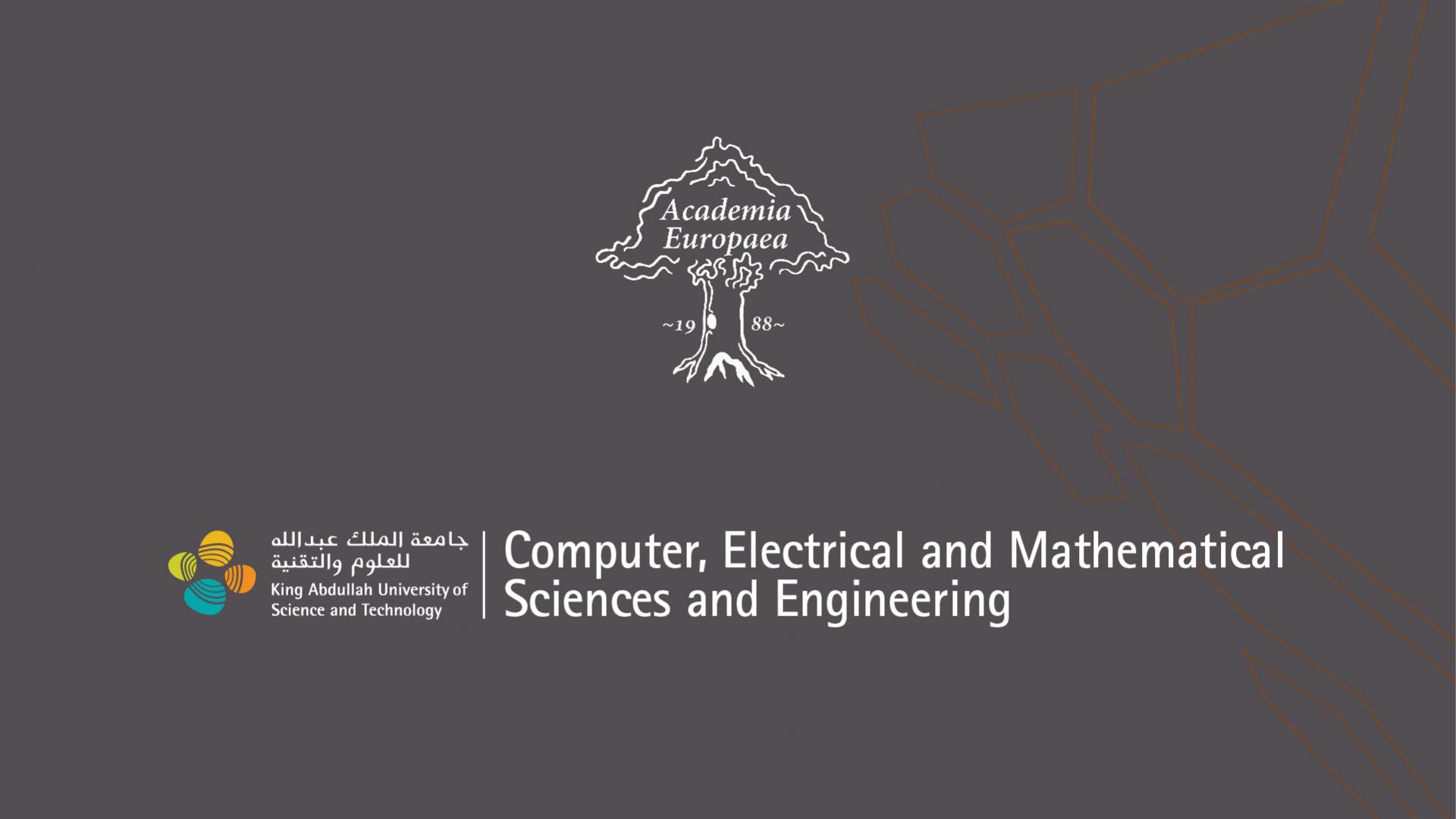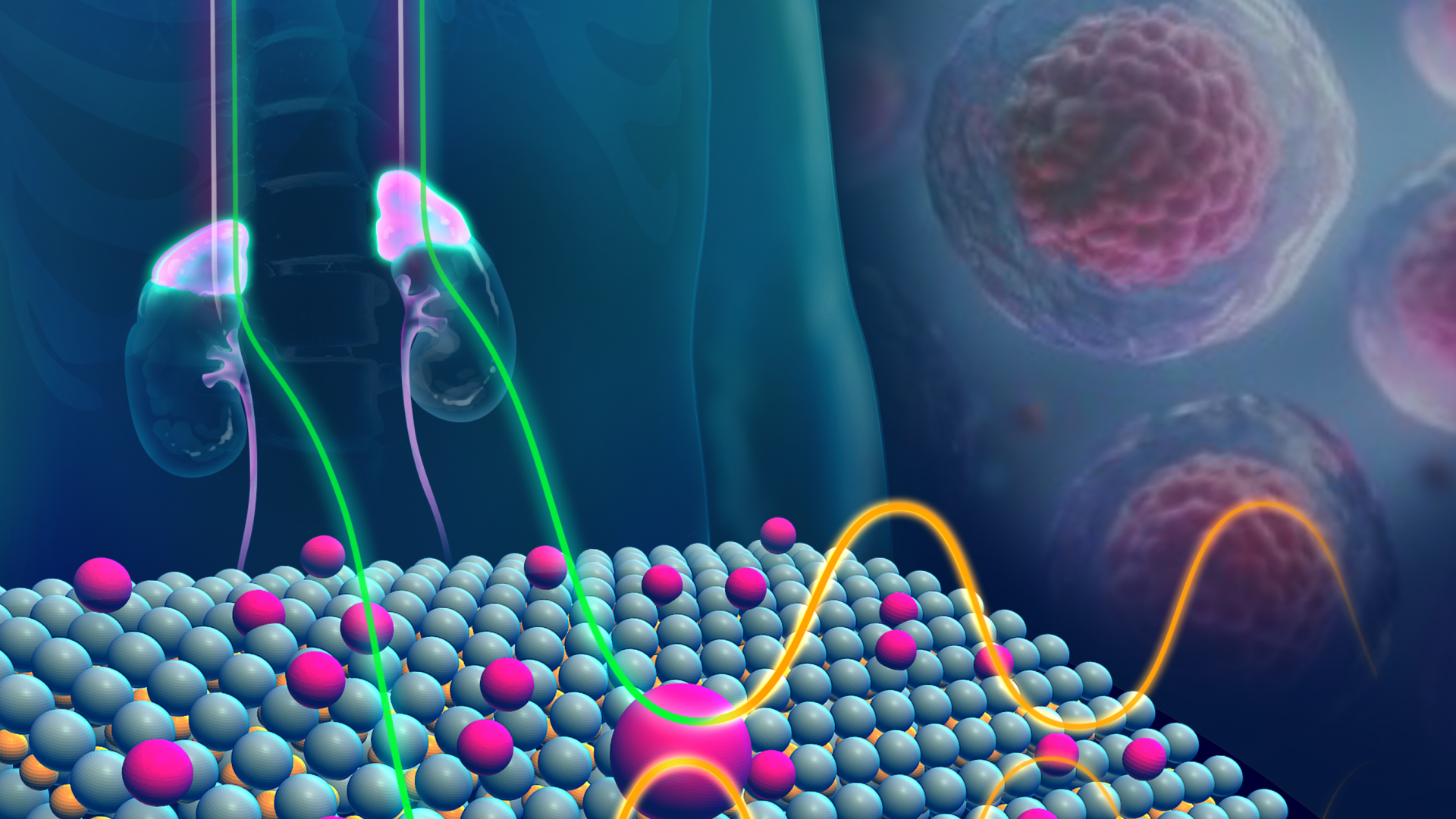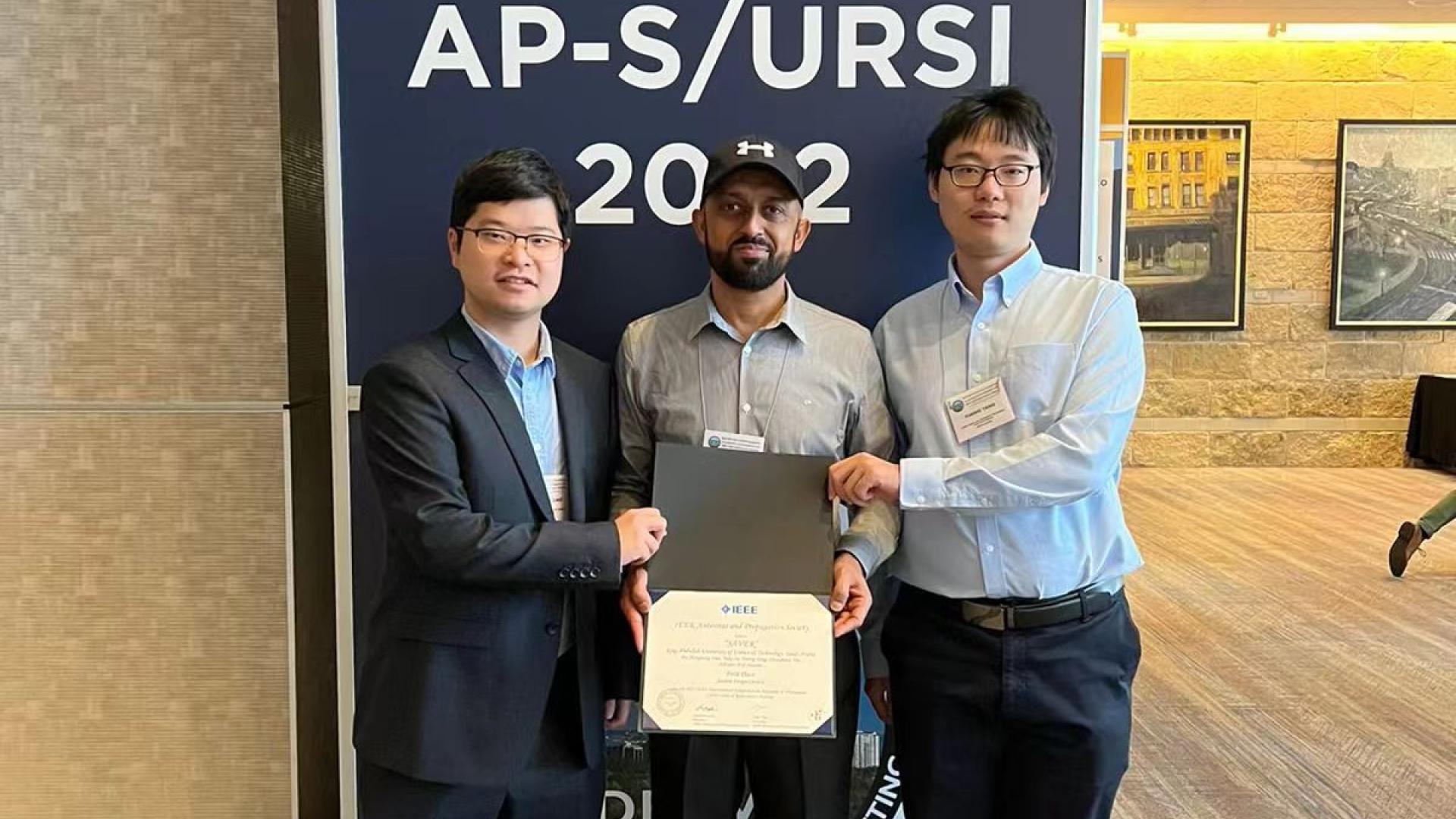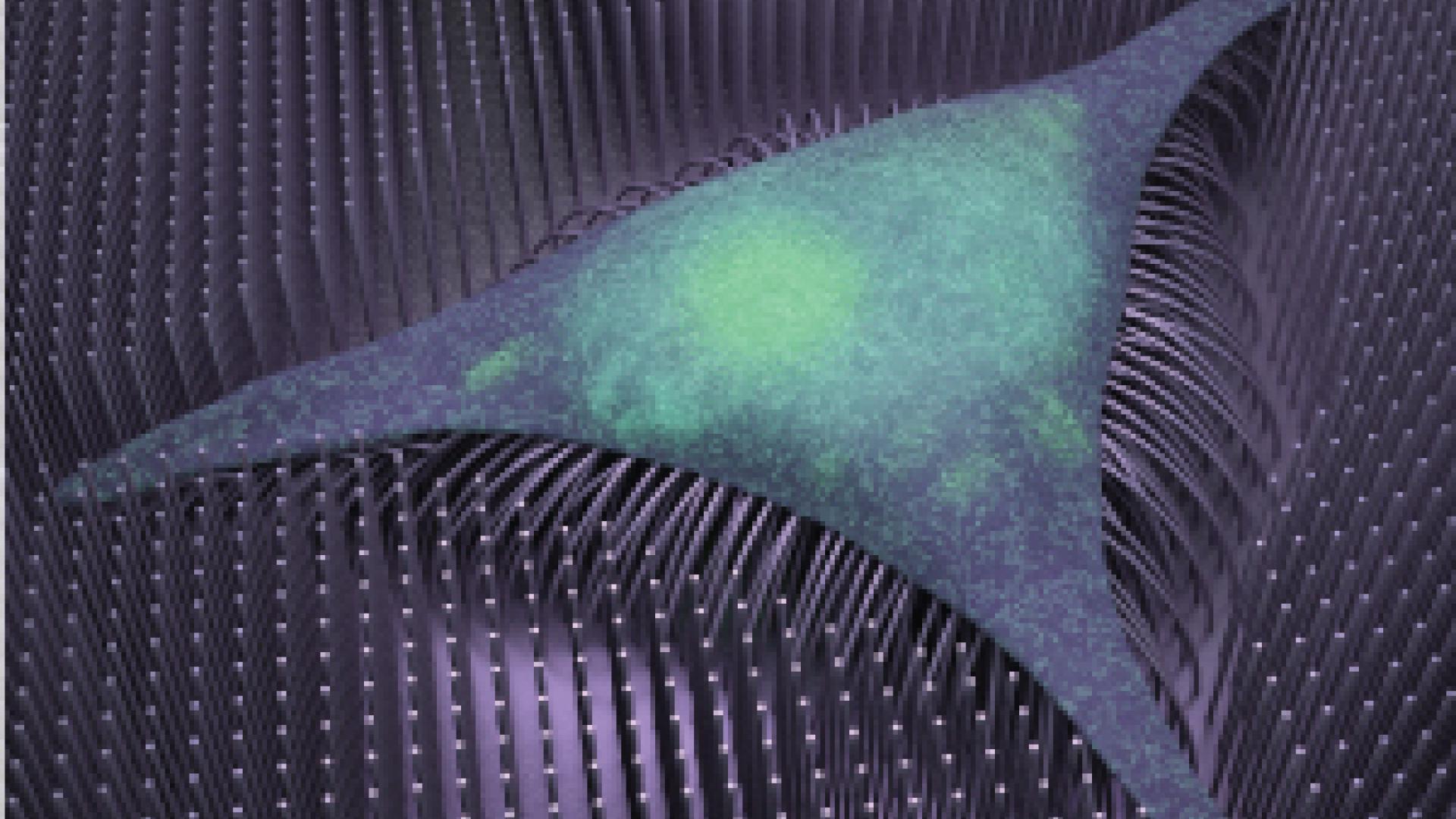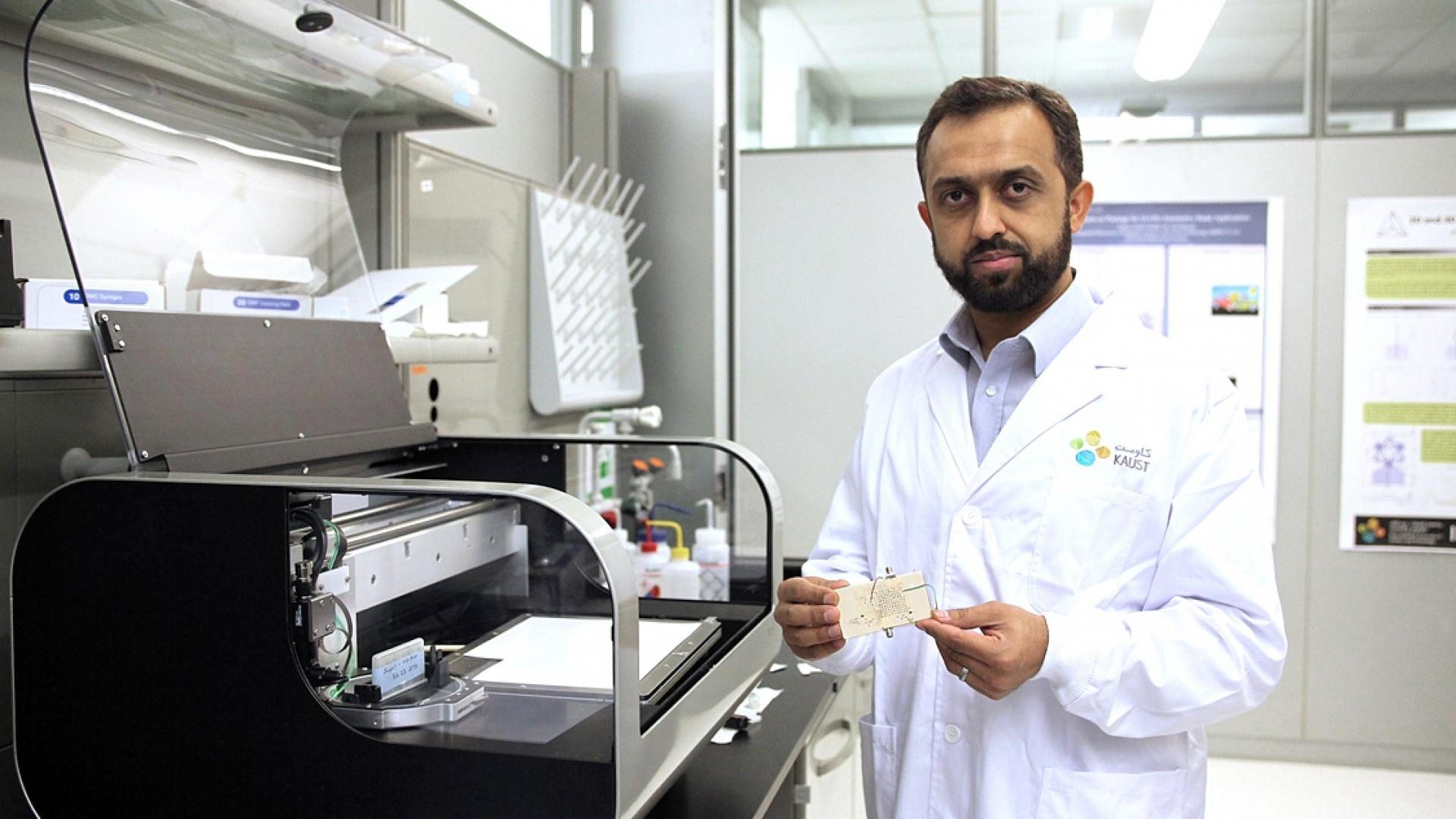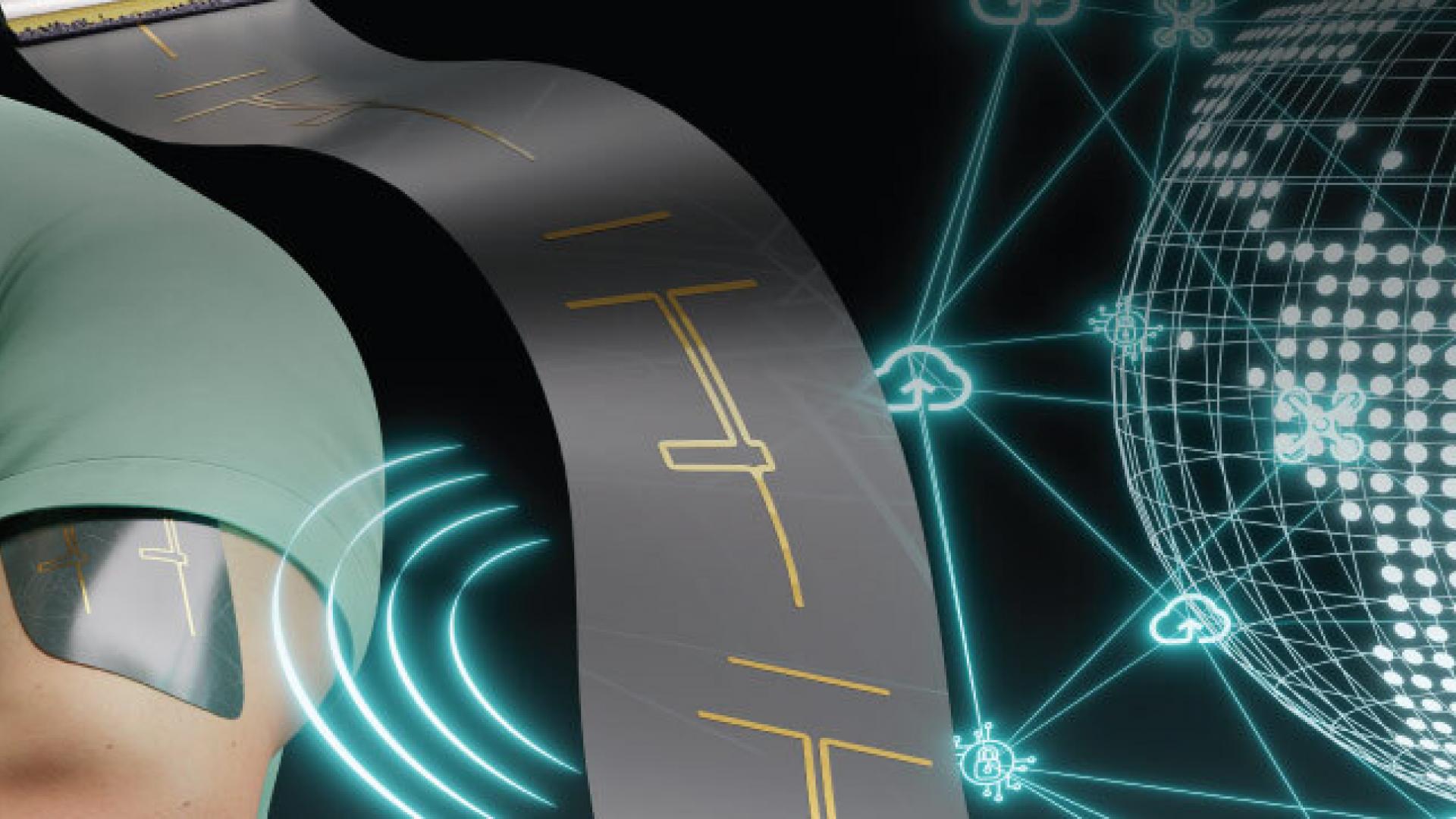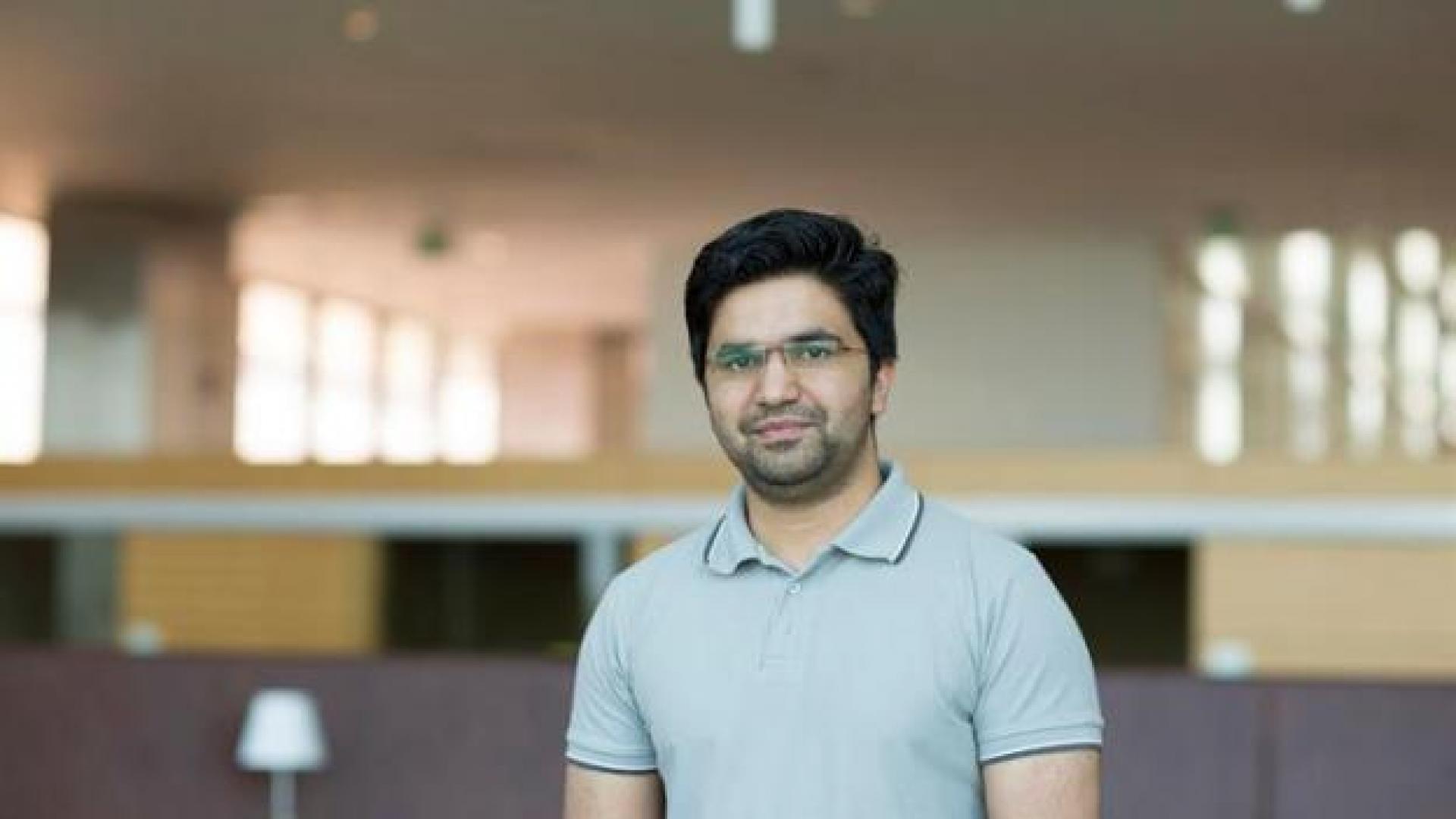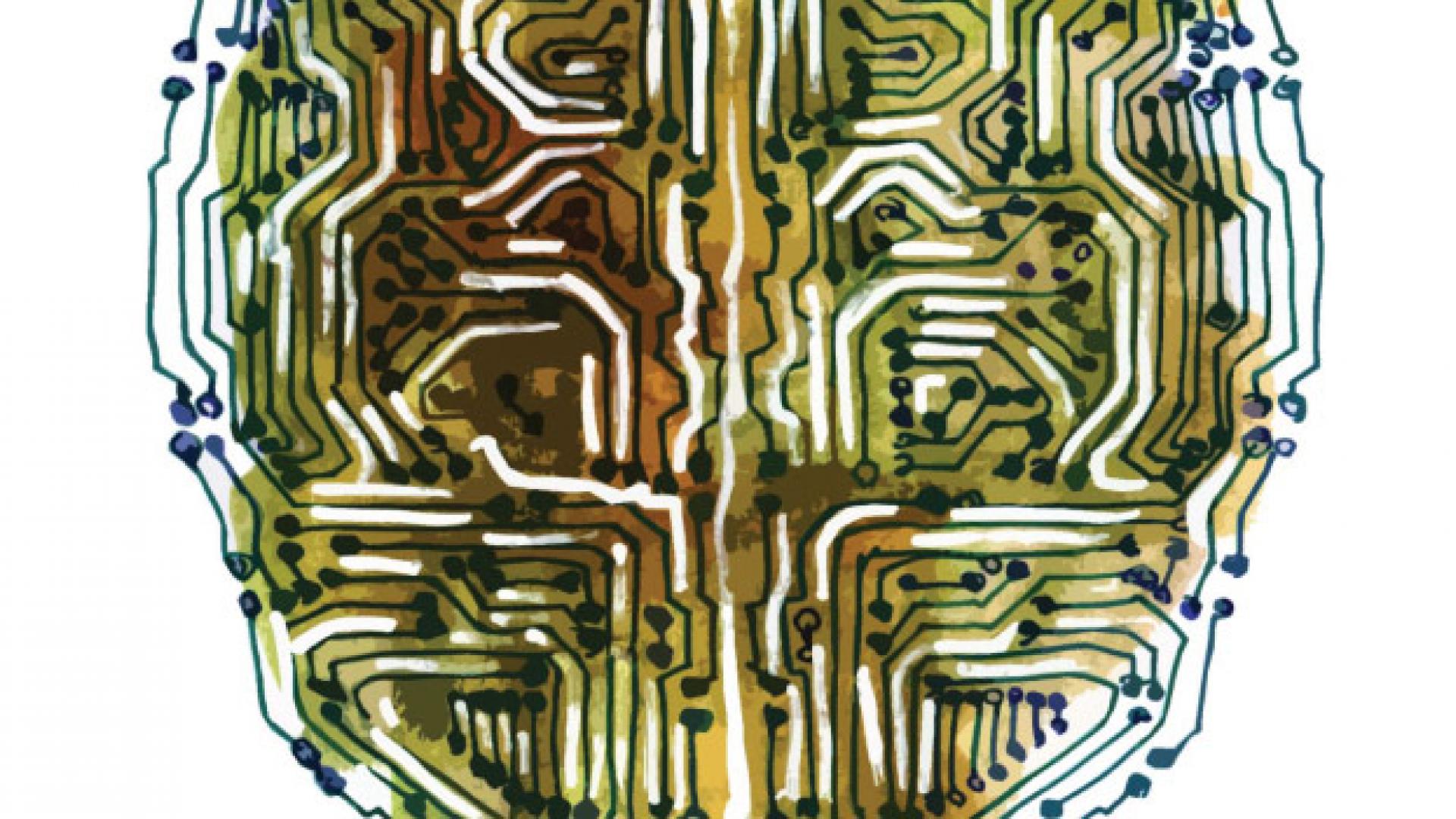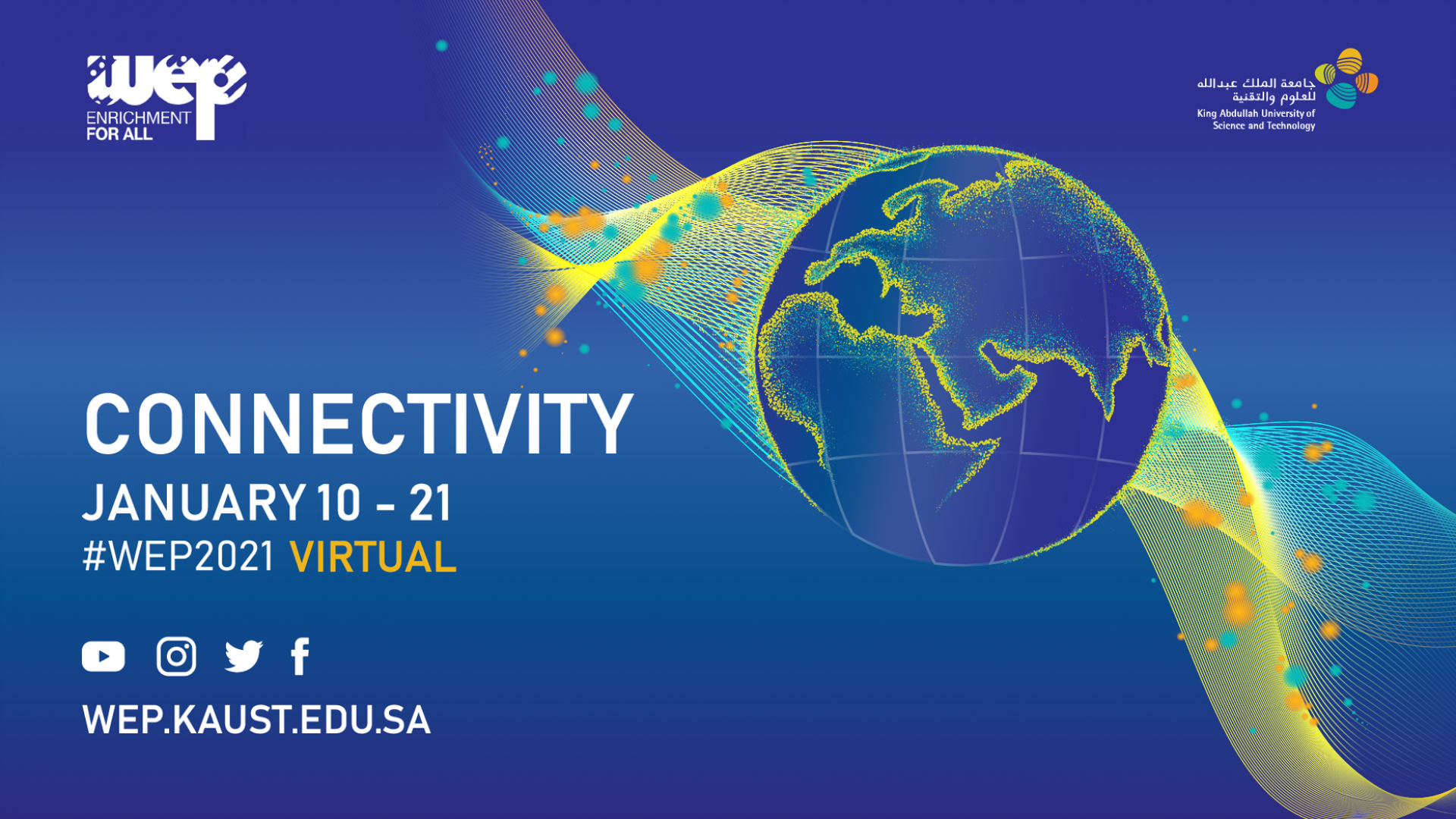Computer memory systems that work change resistance rather than charge could greatly improve the performance of deep neural networks for machine learning.
KAUST researchers develop smartphone-integrated biosensor utilizing supramolecular entities
KAUST CEMSE Division professors Peter Markowich and Jinchao Xu have been elected members of the prestigious Academia Europaea.
An electronic sensor based on individual atoms anchored to MXene nanomaterials can detect tumor-specific biomarkers.
KAUST Compound Semiconductor Weekend brought together a diverse group of experts to discuss the most important research areas of semiconductor technology and the substantial compound semiconductor work done in Saudi Arabia and India.
Hanguang Liao and Yiming Yang from the KAUST IMPACT Lab won first place in the 2022 IEEE AP-S Student Design Contest at the 2022 IEEE International Symposium on Antennas and Propagation and USNC-URSI Radio Science Meeting (IEEE AP-S/URSI 2022), held in July in Denver.
Jasmeen Merzaban, Jürgen Kosel and colleagues from their labs developed nanotechnology that accelerates the transition of stem cells into bone and could advance regenerative medicine.
KAUST researchers have built an artificial electronic retina that mimics the behaviour of the eye’s rod retina cells. Their artificial retina can recognise handwritten numbers.
KAUST Associate Professor of Electrical and Computer Engineering Atif Shamim has been selected as a Distinguished Lecturer (DL) for the IEEE Antennas and Propagation Society (AP-S) from 2022 to 2024. In his new role, sponsored by the IEEE, Shamim will give lectures to AP-S chapter members on topics of interest and importance to the global AP community.
A screen-printing approach to creating foldable circuits could make many functional devices easier and cheaper to mass produce.
Muhammad Akram Karimi, KAUST Ph.D. student and co-founder of the KAUST-supported startup company Saher Flow Solutions, has been selected as the recipient of the 2021 IEEE Sensors Council Technical Achievement Award in the Field of Sensors – Early Career. The award honors an individual with “outstanding technical contributions within the scope of the IEEE Sensors Council, as documented by publications and patents. It is based on the general quality and originality of contributions.”
Ultrathin needles for probing plants could help keep crop health in check.
A neural network that mimics the biology of the brain can be loaded onto a microchip for faster and more efficient artificial intelligence.
Connectivity is a word that underscores the kind of world we live in today. Without access to technologies that enable us to connect with each other, surviving a year of physical distancing due to COVID-19 health prevention measures would have been extremely difficult.
Laser writing breathes life into high-performance sensing platforms.


